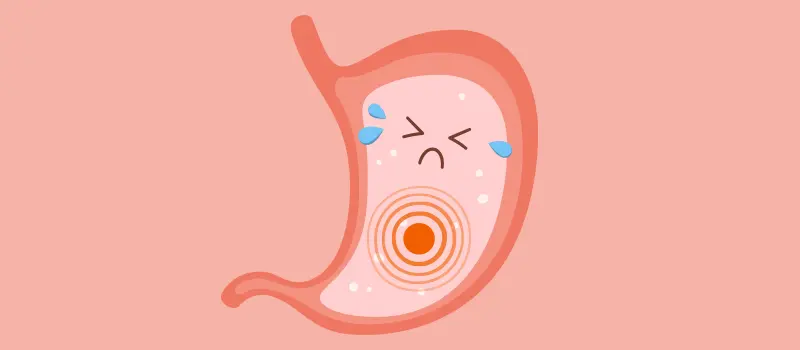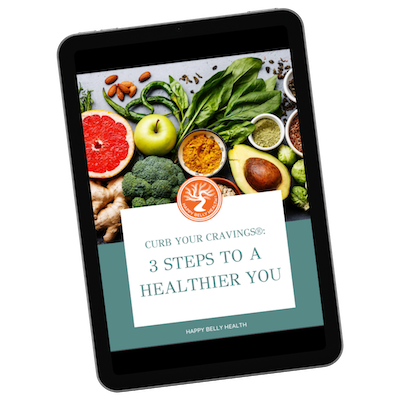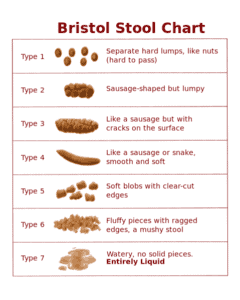
Stomach Acid is Good For You – But is Often Impaired!
Normal Stomach Acid Production:
- A healthy stomach maintains a strongly acidic environment with a pH between 1.0 and 2.5.
- Modern lifestyle factors, such as sustained stress or suboptimal thyroid function, can reduce stomach acid production.
- Autoimmune conditions can also impair acid production.
Aging and Helicobacter Pylori (H. Pylori):
- Gastric Infection: H. Pylori bacteria are common in the human gut and can overgrow, leading to reduced stomach acid production.
- Impact Over Time: As we age, H. Pylori overgrowth can progressively reduce stomach acid.
- Statistics:
- 50% of people aged 60 or older produce insufficient stomach acid.
- By age 85, this increases to 80%.
- Condition Name: This condition is known as hypochlorhydria. It has far-reaching impacts that are often overlooked in conventional medicine.
Impact of Acid-Suppressing Medications:
- Proton Pump Inhibitors (PPIs):
- Examples: Nexium®, Prilosec®.
- Dramatically reduce gastric acidity.
- H2 Receptor Blockers:
- Examples: Zantac®, Pepcid®.
- Less aggressive but still reduce acidity.
- NSAIDs:
- Examples: Aspirin, ibuprofen (Advil®, Motrin®).
- Can impair acid production and damage the stomach lining.
- Antibiotics: May also reduce stomach acid.
Consequences of Reduced Stomach Acid:
- Nutrient Absorption:
- Strong stomach acid is essential for digesting proteins, absorbing Vitamin B12, and separating minerals for intestinal uptake (e.g., iron, magnesium).
- Digestive Efficiency:
- Reduced acidity affects pepsin, a critical enzyme for protein digestion.
- Affects overall intestinal pH, impacting pancreatic and gallbladder digestive fluids and enzyme effectiveness.
Health Problems Associated with Hypochlorhydria:
- Protein Digestion: Poor digestion affects amino acid availability for hormone and neurotransmitter synthesis.
- Vitamin B12 Deficiency:
- Symptoms: Cognitive impairment, fatigue, impaired methylation/detoxification, neuropathy, and nervous system problems.
- Mineral Deficiencies:
- Can lead to anemia, type 2 diabetes, autoimmune diseases, arthritis, depression, hypothyroidism, and more.
Common Symptoms of Hypochlorhydria:
- Nausea: After taking supplements (except zinc, which may cause nausea on its own).
- Undigested Food: Visible in stools.
- Upper GI Issues: Bloating, belching, early satiety during or after meals.
- Digestive Issues: Irritable bowel syndrome (IBS), frequent gut infections, or microbial imbalances (e.g., candida, parasites).
- Fatigue: Particularly after meals, especially if consumed slowly.
- Vitamin and Mineral Deficiencies:
- Low levels of Vitamin B12 and/or iron despite a meat-rich diet.
- Frequent hair or nail breakage or thinning.
- Allergies: Chronic allergies or urticaria.
- Multiple Deficiencies: Despite a whole foods diet (e.g., zinc, magnesium, chromium, copper).
- Other Symptoms:
- Rosacea
- Osteoporosis or advanced osteopenia
- Multiple food allergies or sensitivities
- Asthma, especially with wheezing
- Chronic indigestion or GERD
Low Stomach Acid Experiment
Objective:
The goal is to determine whether increasing stomach acidity benefits you and, if so, find the optimal dosage. This experiment will help you and your healthcare practitioner address the root causes of stomach acid deficiency.
Preparation:
- Timeline: Plan your experiment over a week while maintaining your regular lifestyle.
- Supplement: Obtain capsules of “HCl betaine with pepsin” (typically 600-650 mg per capsule).
Experiment Steps:
Initial Test:
- Take one capsule of HCl in the middle of your largest meal of the day, ideally one that contains protein.
- Note the timing: take the capsule during the meal, not at the beginning or end.
Observe Reactions:
- If you do not experience discomfort or burning, take one capsule with every protein-containing meal for the next 2 days (total of 6 meals).
- Monitor for positive effects such as reduced fullness, increased post-meal energy, improved bowel movements, or reduced acid reflux/indigestion.
Increase Dosage:
- If there are no negative reactions after 6 meals, increase the dosage to two capsules per meal.
- Continue this increment every 2-3 days, up to a maximum of eight capsules per meal if necessary.
Recognize Overdose Symptoms:
- If you experience warmth, tingling, burning in the chest, diarrhea, neck or back ache, heartburn, or any discomfort, you may have taken too many capsules.
- If discomfort occurs, neutralize it quickly by drinking ½ teaspoon of baking soda mixed with ½ cup of water.
Find Your Optimal Dose:
- Once you identify a dosage that causes discomfort, reduce the dose to one capsule less than the amount that caused symptoms.
- If up to 8 capsules cause no symptoms, maintain that dosage.
Adjust Based on Meal Composition:
- Dosage may vary based on meal size and composition. Larger protein-containing meals may require more HCl.
- Some individuals may need 6-8 capsules per meal, while others might only need 1-2.
Monitor and Adjust:
- As you address the root causes of hypochlorhydria with your healthcare practitioner, your natural stomach acid production may improve.
- Adjust HCl dosage as your body’s tolerance changes.
Notes:
- Be consistent with your HCl use.
- Always consult with your healthcare practitioner if you have questions or if symptoms persist.
This experiment is designed to help you understand how your body responds to increased stomach acidity and to find the optimal dosage for your needs.
Cautions and Considerations
Mucosal Lining Health: Individuals with a history of low stomach acid often experience thinning of the stomach’s protective mucosal lining. Consult with your healthcare practitioner before increasing stomach acidity, especially if you have used acid-suppressing medications like PPIs. You may need to support mucosal repair for 2-3 weeks before resuming HCl.
Medication Interactions: Avoid using HCl if you are taking medications that can weaken or damage the stomach lining, such as steroids (e.g., prednisone) and NSAIDs (e.g., ibuprofen, aspirin). These medications can increase the risk of gastritis or gastrointestinal bleeding.
Contraindications: Do not use HCl if you have gastritis or ulcers, as it can irritate unprotected tissue.
Proper Use: Always take HCl capsules intact, in the middle of a meal. Avoid opening capsules or mixing their contents with food or beverages. Ensure you take a bite or two of food immediately after swallowing the capsule to help it reach the stomach and prevent discomfort from a capsule sticking to the esophagus.
Sensitivity Alternatives: If you are sensitive to HCl, try using 1-2 tablespoons of apple cider vinegar or lemon juice mixed with ½ cup of water during meals to increase stomach acidity. This method is less intense than HCl but may be suitable for sensitive individuals.
If you would like some customized support to delve deeper into your health and nutrition, let’s chat.
© Purpose Inc., The School of Applied Functional MedicineTM






